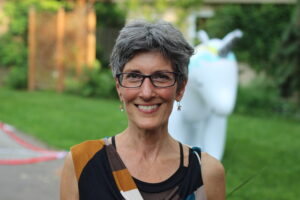TRN171Y1: Ethics and the Public Sphere
COURSE DESCRIPTION
To whom and what are we obligated, and on what grounds?
What rights do we have over ourselves, our bodies, our privacy, our choices? How should we secure these rights?
What do we owe to one another, to the biosphere, our families, communities, our own species, and others?
Are we defined most in our individuality or in relationship?
What are our obligations to future generations and how do we fulfill them?
In this course, we read texts from philosophy, history, law, political science, cultural studies and beyond that engage with the theme of ethics in the public arena. These provide valuable analytic tools as we confront urgent contemporary issues.
Breadth Requirements: 0.5 FCE 2) Thought, Belief and Behaviour + 0.5 FCE 3) Society and Its Institutions
HOW WILL I BE EVALUATED?
This course will ask you to think reflexively about your responses to the readings. That means you may not be asked to forward traditional arguments as in your other academic courses. This may be difficult at first, but it’s important to have an open mind about the generative potential of this kind of work. You will also be asked to work in groups to facilitate class discussion, deliver oral presentations, and produce your own research. Participation in this course is heavily weighted.
Marked assignments include 3 reflection papers, a research paper, and an oral test. Participation (40% of final mark) includes verbal contributions and deep listening, plus discussion board participation.
Note: Assignments can vary year to year.
WHAT WILL I GAIN FROM THIS COURSE?
Students will read texts in philosophy, history, political science, and cultural studies and use these texts to engage in discourse around broader cultural and social phenomena. Students will employ the interdisciplinary analytical tools offered in course readings when thinking about how to confront contemporary ethical questions. Students will also be encouraged to think reflexively, placing themselves and their social positionalities in dialogue with broader interpretation of the course readings and of social problems generally.
FREQUENTLY ASKED QUESTIONS
2023-2024 COURSE INSTRUCTOR
|
Email: sdavis@trinity.utoronto.ca Simone Weil Davis is a mother, Nana, daughter, sister, and spouse. An actor in her early years, she holds a PhD in American literature from UC Berkeley. Prior to arriving at Trinity, she taught at New York University and Mount Holyoke College. Simone comes at Ethics, Society & Law as an interdisciplinarian, with a background in gender studies, cultural studies, and literature. She considered commodification in Living Up to the Ads: Gender Fictions of the 1920s; since 2005, Simone’s research, writing and collaborative priorities include alternative pedagogies; the impacts of criminalization; and pathways toward educational justice and a world without prisons. She was cofounder and first director of the Walls to Bridges program.
|
 Simone Davis, PhD
Simone Davis, PhD 
